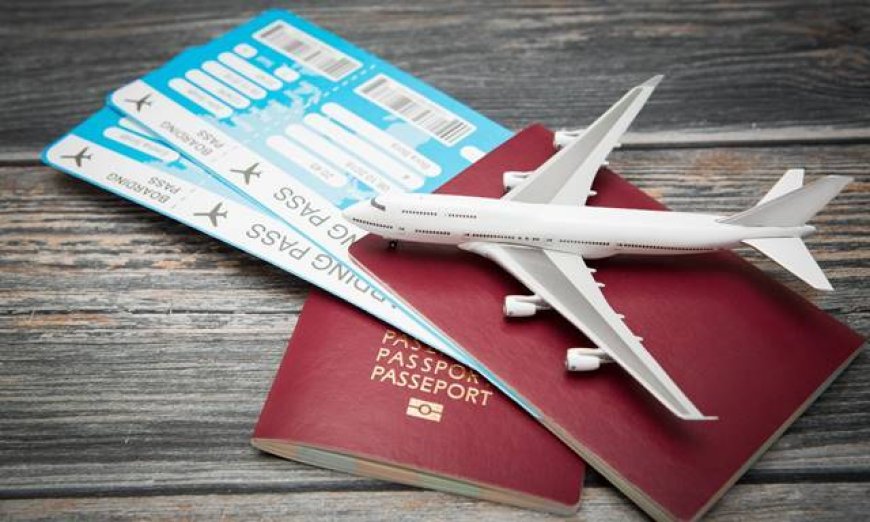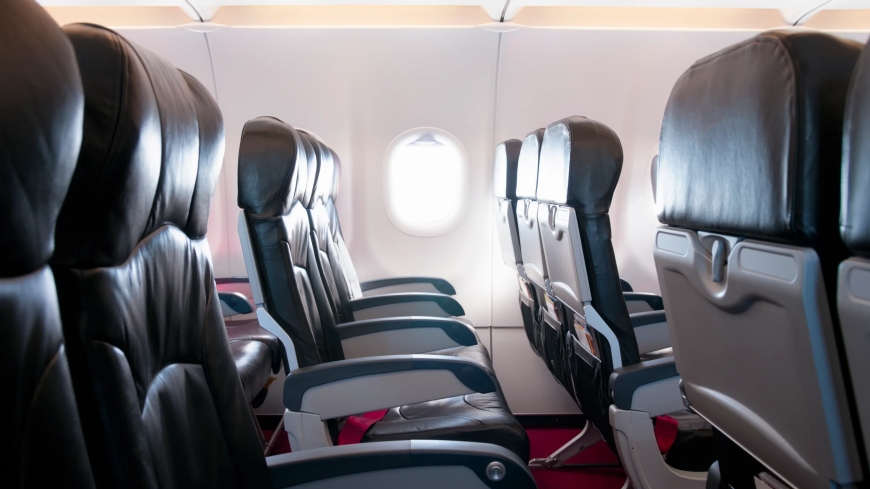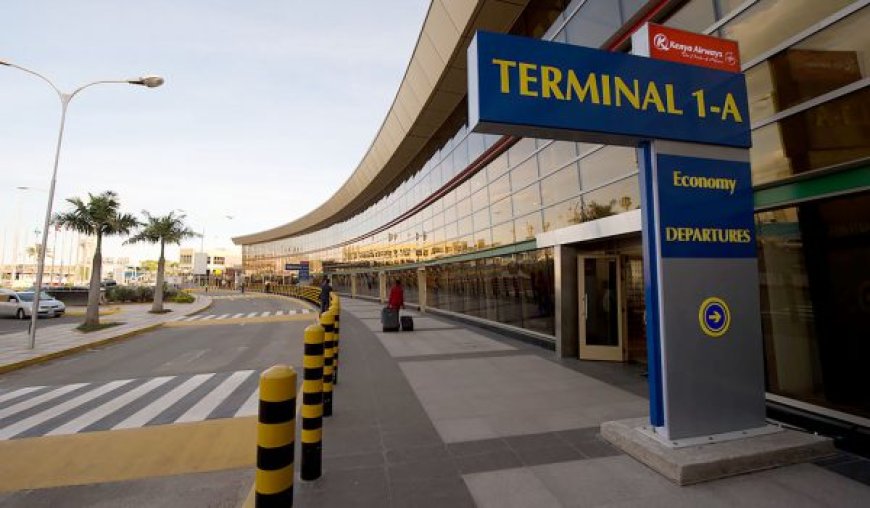Why Air Tickets Expire After One Year & How Airlines Make Billions From It
One of the interesting facts about air travel is that you can reuse your ticket at some other time of day, other than the day you were scheduled to fly.

On Tuesday, May 27, it was reported that customers of national airline Kenya Airways (KQ) lost Ksh4.66 billion on failure to make use of their tickets within the allowed window of 13 months after purchase.
The airline reported a 9.4 per cent increase in revenue from unused tickets, hitting Ksh4.66 billion — the biggest it has been in five years. This was the third straight year that earnings from expired tickets have gone up, thanks to more people booking and travelling.
Tickets are sold ahead of time and initially counted as liabilities. However, if a passenger doesn’t use their ticket within 13 months, the airline gets to claim that cash as revenue.
“It is the customers’ responsibility to utilise their tickets within the validity period. The information regarding ticket validity is given at the time of purchase, and the same, especially in cases of unrestricted tickets, is contained in the Conditions of Carriage, published on Kenya Airways’ website,” KQ’s Head of Pricing and Revenue Management Jackson Kamande told Business Daily.

People queue at the Kenya Airways ticket office in Jomo Kenyatta International Airport in Nairobi, Kenya, on Monday during a strike by pilots working for Kenya's national airline, Kenya Airways, in November 2022. /VOA
One of the interesting facts about air travel is that you can reuse your ticket at some other time of day, other than the day you were scheduled to fly. Suppose you miss your flight after you booked it, or circumstances forced you to cancel your travel plans...you may have asked yourself if "I can still use this ticket later".
The answer is yes, but for a limited time. Most airlines give you one year from the date of purchase to use or rebook your ticket, and at most, up to 13 months. Missing that window will see thousands of shillings that you had probably saved up hard for go down the drain.
In this article, we dive into why airline tickets are valid for one year after purchase, how that policy works, and why so many people lose money because of it.
The One-Year Rule: Where It Comes From
The one-year ticket validity rule is not some arbitrary decision by the airlines, but rather grounded in long-standing airline industry standards governed by the International Air Transport Association (IATA) and baked into airline tariffs and contracts of carriage.
According to these rules, a standard airline ticket is valid for one year from the date of issue, not the travel date. That means if you bought your ticket on January 1, 2024, it technically expires January 1, 2025, whether you used it or not.
Some airlines allow you to rebook within 12 months of the original departure date, and then travel up to 13 months from the purchase date if you change your flight just before expiration. However, even that is subject to airline-specific policies and fare class rules. There’s often confusion between “rebooking” and “travel”, and that’s where people make mistakes.
What Happens If You Don’t Use It?
If you don't fly within that one year or fail to rebook in time, your ticket loses all value. That includes not just the airfare, but also any taxes and fees you paid.
For most non-refundable tickets (which are what the majority of travellers book), you're out of luck. The credit vanishes. The airline doesn’t owe you a refund, a voucher, or even an apology. It just disappears.
Some premium fare types (like fully refundable business or first-class tickets) have more flexible terms, but for the average traveller booking economy, there’s a ticking clock from the moment you buy.
Why Airlines Have This Policy
This policy exists partly to protect airline revenue. The aviation industry operates on thin profit margins, and pricing is based on a volatile mix of supply, demand, fuel costs, seasonality, and competition. If airlines allowed indefinite travel credits, it would wreak havoc on their ability to forecast income, manage seat inventory, and control pricing models.
Imagine if thousands of travellers suddenly cashed in years-old tickets during peak travel season. It would not only strain logistics but also drive up costs for other passengers.
By enforcing a one-year window, airlines get clarity and consistency on their books. Plus, many customers simply forget or give up on using their ticket credits, which is pure profit for the airline.
Also, remember: the ticketing systems in aviation were built decades ago and are still based on legacy technology. Some of these systems literally cannot process bookings beyond 365 days, so it is not just about money—it is also about outdated technology and operational efficiency.

Inside a passenger aircraft. /GETTY IMAGES
COVID Changed the Game (Temporarily)
Let’s not forget that the rules were disregarded temporarily during the COVID-19 pandemic. Between 2020 and 2022, airlines worldwide relaxed their rebooking and expiration policies due to mass cancellations and global travel bans.
Tickets that were normally valid for 12 months were extended to 24 months or longer. Some airlines offered flexible credits with no expiration dates for a while.
However, once the dust settled and air travel bounced back, those pandemic-era flexibilities were slowly phased out. Today, most carriers have reverted to the pre-COVID 12-month validity window, and people who got used to pandemic flexibility are now getting a rude awakening.
Why So Many People Lose Money
People lose money on expired tickets because they do not fully understand the terms. Let’s break down the main reasons why:
-
Assuming the expiration date is tied to the travel date. People often think they have a year to travel from their original departure date, when really it’s a year from purchase.
-
Not knowing that they have to rebook within the validity period. Even if the new flight is scheduled for later, the action of rebooking must be done before the ticket expires.
-
Forgetting entirely. Life gets in the way. People cancel a trip, store their credit, and then forget about it until it is too late.
-
Thinking non-refundable means no value. If you cancel before your flight departs, even a non-refundable ticket may have some residual value in the form of a credit. But that value expires in a year if unused.
-
Lack of clear communication. Airlines are notoriously bad at spelling out the details. Most people don’t read the fine print buried in confirmation emails or contracts of carriage.
Can You Do Anything About It?
Once your ticket expires, your options are slim. Some airlines may make exceptions if you call and plead your case, especially if it was a recent lapse and you have elite status, but don’t count on it.
Here’s what you can do to avoid losing money:
-
Track your credits actively. Use travel apps or even a simple spreadsheet. Set reminders to rebook before the ticket expires.
-
Understand your fare class. Check the airline’s website or call customer service to confirm your ticket’s expiration policy.
-
Rebook before the clock runs out. Even if you're not sure when you’ll travel, you can often make a tentative change and then adjust it later (within limits).
-
Consider travel insurance. If you’re buying a pricey ticket and worried about last-minute changes, insurance might help recover costs if something unexpected happens.
-
Use your voice. Push airlines for better transparency and easier tools to manage credits. This is a weak spot in airline customer service, and consumers have power.
Could Airlines Do Better?
Absolutely. It’s 2025, and there’s zero excuse for airlines not to notify passengers well in advance of expiration. You get endless reminders about fare sales and loyalty program deals, but rarely a “Hello, your Ksh50,000 credit expires in 30 days”, which is intentional. The less they remind you, the better for their bottom line.
Some airlines have improved transparency and customer tools in recent years, making it easier to view, manage, and use credits. However, for many others, it is still a confusing mess of confirmation numbers, blackout dates, and expiration ambiguity.
Airlines also have an opportunity to build goodwill by offering small grace periods or extension options, even if it is for a fee. The goodwill generated from helping a customer retain Ksh40,000 versus the cost of that empty seat could be a win-win.







